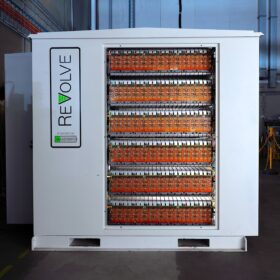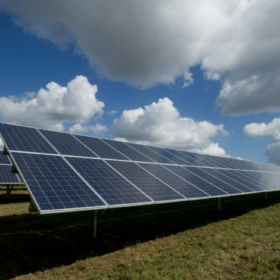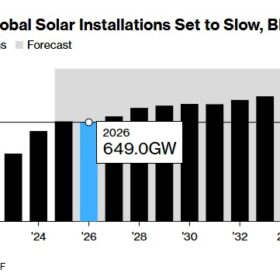While the land requirements of renewable energy projects are often criticized in public debates, this study highlights a striking contrast: vast areas are allocated to golf courses, which serve a relatively small, often affluent population.
The study shows that in countries such as the United States and the United Kingdom, far more land is allocated to golf courses than to renewable energy facilities. In the top 10 countries with the most golf courses, an area equivalent to that used for golf could support up to 842 GW of solar and 659 GW of wind capacity — exceeding current installed capacity in many cases.
Golf courses typically require large amounts of water and chemical treatments, leading to a significant environmental impact. In contrast, renewable energy installations such as solar farms and wind turbines offer a sustainable land use option while directly reducing greenhouse gas emissions. Utility-scale solar farms require approximately 0.01 km² of land per MW, while wind farms require around 0.12 km² per MW, though only a small fraction of this land is actually impacted by turbines and infrastructure. Additionally, built-up land such as golf courses is often overlooked in renewable energy potential analyses, emphasizing the need to rethink land use priorities.
Dr Jann Weinand, lead author of the study and Head of the Integrated Scenarios department at the Institute Jülich Systems Analysis at Forschungszentrum Jülich, says: “Our study does not advocate for the direct conversion of golf courses, but it highlights the vast potential for renewable energy on similarly large and underutilized areas. In light of the ongoing debates about land use for renewables, it is crucial to consider how we allocate land overall — especially when significant space is dedicated to activities that benefit only a limited segment of the population.”





By submitting this form you agree to pv magazine using your data for the purposes of publishing your comment.
Your personal data will only be disclosed or otherwise transmitted to third parties for the purposes of spam filtering or if this is necessary for technical maintenance of the website. Any other transfer to third parties will not take place unless this is justified on the basis of applicable data protection regulations or if pv magazine is legally obliged to do so.
You may revoke this consent at any time with effect for the future, in which case your personal data will be deleted immediately. Otherwise, your data will be deleted if pv magazine has processed your request or the purpose of data storage is fulfilled.
Further information on data privacy can be found in our Data Protection Policy.